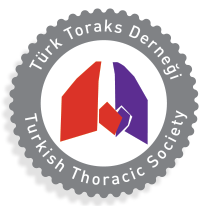Abstract
Chronic obstructive pulmonary disease (COPD) impairs activities of daily living of the patients. The purpose of this study was to compare level of activities of daily living, and to determine the factors predicting activities of daily living in patients with moderate and severe COPD. Thirty-five patients with moderate and severe airflow obstruction participated in this study. Patients were evaluated using pulmonary function test, arterial blood gases, six-minute walk test, Borg scale, Medical Research Council Dyspnea Scale, Hospital Anxiety and Depression Scale, and Activities of Daily Living Questionnaire (Q-ADL). In patients with severe obstruction, six-minute walk distance was significantly lower (p=0.03), and Q-ADL score was significantly higher than those of patients with moderate obstruction (p=0.022). Q-ADL score was significantly related with disease duration (r=0.52), depression (r=0.50), anxiety (r= 0.47), Borg scale (r=0.36), six-minute walk distance (r=-0.38), and FEV1 (r=-0.35) (p<0.05). The stepwise multiple regression analysis revealed that duration of COPD, FEV1 and smoking status were significant and independent predictors of Q-ADL (r2=0.52, p=0.031). In conclusion, the level of activities of daily living is impaired more in severe COPD than in patients with moderate obstruction. In COPD, duration of disease, severity of airflow obstruction measured using FEV1, and smoking status are the factorsdetermining the level of function in daily living.



.png)
